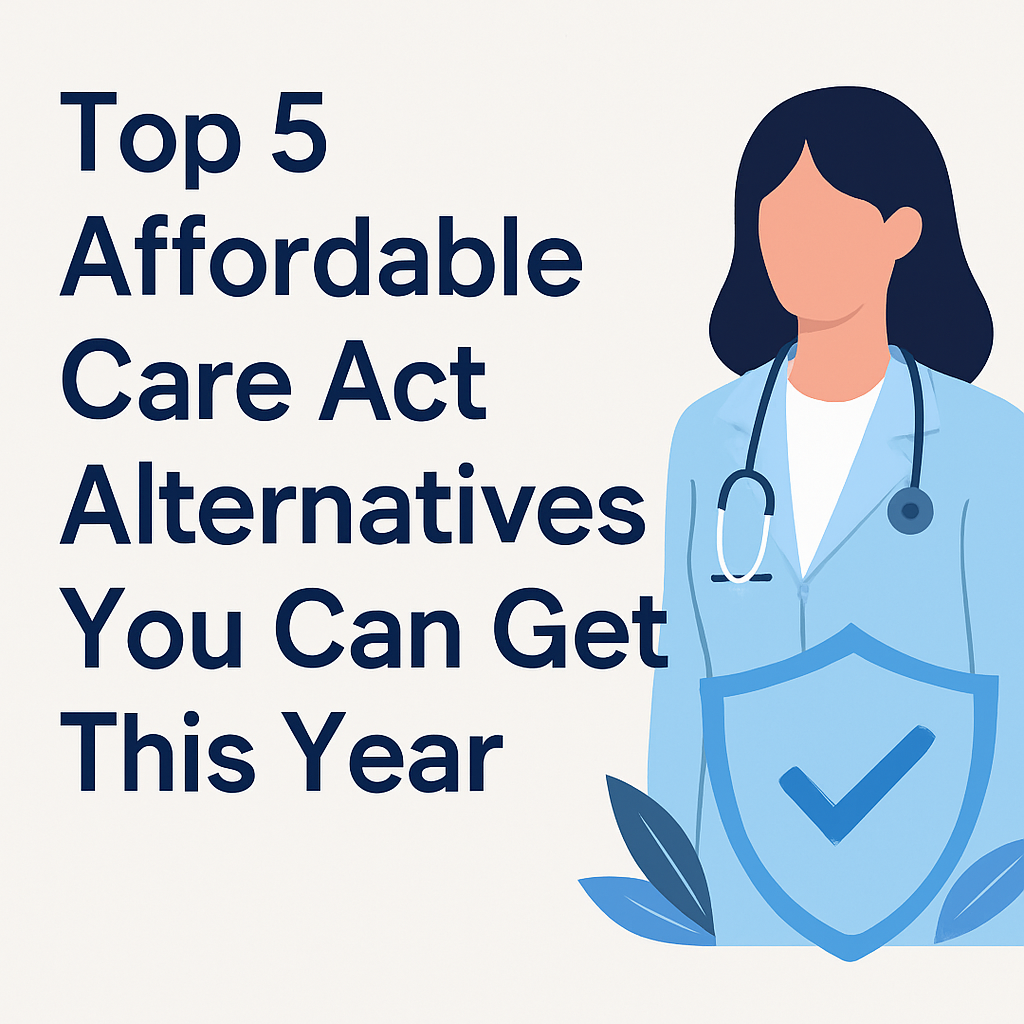Top 5 Affordable Care Act Alternatives You Can Get This Year

If you’re exploring health insurance options beyond the Affordable Care Act (ACA), you’re not alone. In 2025, many Americans are seeking alternatives that better fit their budgets, lifestyles, or eligibility requirements. While the ACA marketplace offers many plans, it might not be the perfect fit for everyone.
This guide will walk you through the top five alternatives to ACA coverage, helping you make an informed choice about your healthcare options this year.
Why Look Beyond the Affordable Care Act?
The ACA was designed to expand healthcare access, but some find its plans expensive or restrictive. Subsidies depend on income and household size, and not everyone qualifies. Additionally, some people want more flexibility or specialized coverage options.
Alternatives can offer:
- Lower monthly premiums
- Different coverage networks
- Temporary or faith-based solutions
- Programs targeted for low-income families
Understanding these options allows you to choose a plan tailored to your needs.
1. Short-Term Health Insurance
Short-term health insurance is designed as a temporary fix. Whether you’re between jobs, waiting for new employer coverage, or simply want a stopgap plan, short-term insurance can help.
Features:
- Coverage duration: Typically 1 to 12 months (renewable in some states)
- Lower premiums than ACA plans
- Limited coverage — usually excludes pre-existing conditions, maternity, and mental health
- Quick approval with minimal paperwork
Who Should Consider It?
Ideal for healthy individuals needing temporary coverage without long-term commitments.
2. Health Care Sharing Ministries
Health care sharing ministries are faith-based communities where members share medical expenses. While not insurance in the traditional sense, they can be a cost-effective alternative.
What to Know:
- Members contribute monthly shares to help pay others' medical costs
- Often exclude pre-existing conditions or certain treatments
- Not regulated by insurance laws — coverage can vary widely
Best For:
Those aligned with the ministry’s beliefs and comfortable with community-based sharing.
3. Medicaid
Medicaid is a state and federally funded program offering free or low-cost coverage for eligible low-income individuals and families.
Key Points:
- Eligibility depends on state rules and income
- Covers doctor visits, hospital stays, prescriptions, and more
- Some states have expanded Medicaid under ACA guidelines
How to Apply:
Check your state’s Medicaid website or healthcare.gov for application details.
4. Employer-Sponsored Insurance (New Job)
If you land a new job, employer-sponsored plans often offer the best coverage and cost-sharing.
Advantages:
- Group rates often lower than individual plans
- Includes family coverage options
- Typically offers wellness programs and preventive care
Considerations:
Enrollment periods vary — check your new employer’s benefits calendar.
5. Private Health Insurance Plans
Private insurance plans bought directly from insurers offer flexibility, but at higher premiums.
Benefits:
- Wider choice of doctors and hospitals
- More plan options, including PPO, HMO, and EPO
- Often includes dental, vision, and wellness perks
Downsides:
- Can be more expensive than ACA marketplace plans
- Eligibility varies; medical underwriting may apply
How to Choose the Right Plan
When deciding on an alternative to ACA coverage:
- Evaluate your health needs: Consider doctor visits, medications, and planned procedures.
- Compare premiums and deductibles: Low premiums may mean high out-of-pocket costs.
- Check network coverage: Make sure your preferred doctors and hospitals are included.
- Review benefits: Look for mental health, maternity, prescription drug coverage, etc.
- Read customer reviews: Service and claims support can vary widely.
Frequently Asked Questions (FAQs)
Can I switch between ACA and alternatives during the year?
Usually only during open enrollment or qualifying life events (like job loss or marriage).
Are short-term plans really that limited?
Yes, they’re not designed for comprehensive coverage but for temporary protection.
What happens if I don’t have any insurance?
Some states impose penalties, and you risk high medical bills in emergencies.
Choosing the right health insurance is about balancing cost, coverage, and peace of mind. These ACA alternatives provide options for people with different needs and budgets in 2025. Take your time to research and pick what fits best for you.
Leave a Reply